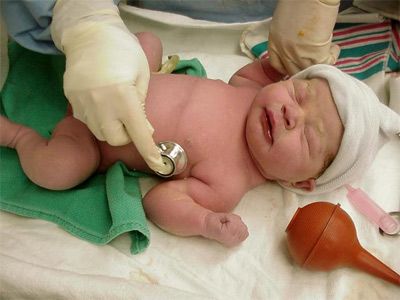Is there a perfect age to get pregnant? It's a question that's probably crossed your mind, particularly if your 30s are around the corner. But if you've put off having a baby until your 30s or 40s, you're in good company. In 1999, 23 percent of first births were to women over 30, compared with only 5 percent in 1975. In fact, the number of births to women ages 35 to 49 has tripled since the 1970s.
Fortunately, much of what we hear about potential risks, especially for expectant mothers older than 35, is unnecessarily alarming. The truth is that no matter what your age, you're very likely to have a healthy baby as long as you are in good health, seek early prenatal care, and adopt sound lifestyle habits. Here's what you can expect in your 20s, 30s, and 40s.
Advertisement
Pregnancy In your 20s
Healthy women in this age range usually have it pretty easy when it comes to pregnancy; it's no wonder they have the most babies! They often conceive within about two months of trying, have a relatively low risk of miscarriage (about 10 percent), and have the fewest medical complications during pregnancy. Some other perks of having a child in your younger years include a low risk of Down syndrome or other chromosomal birth defects and, for reasons not entirely understood, a low risk of giving birth via cesarean section.
However, in some instances, younger is not always better. Women ages 20 to 24 have a slightly higher risk of preeclampsia, a dangerous pregnancy condition that causes high blood pressure and protein in the urine, than women in their middle 20s and early 30s. This is largely due to the fact that women in their early 20s are most likely to be having their first baby, which is a risk factor for the condition. Doctors are unsure why some women get preeclampsia, and the condition is a serious one. It can lead to a slowdown of fetal growth and preterm delivery.
Women in their early 20s also have a greater chance than those in their late 20s and early 30s of having a low birth weight baby, largely because of poor health habits. For example, women ages 20 to 24 are more likely to smoke than women 25 and older, and smoking doubles the risk of having a low birth weight baby. Young women are also more likely to have a poor diet, delay prenatal care, and gain less than the recommended amount of weight (25 to 35 pounds for women of normal weight) — all of which increase the risk of having a baby who is underweight. Low birth weight babies also have a greater chance of health problems as well as lasting disabilities. Fortunately, reducing your risk is simple: Eat well, take a complete vitamin, and seek good prenatal care.
Advertisement
